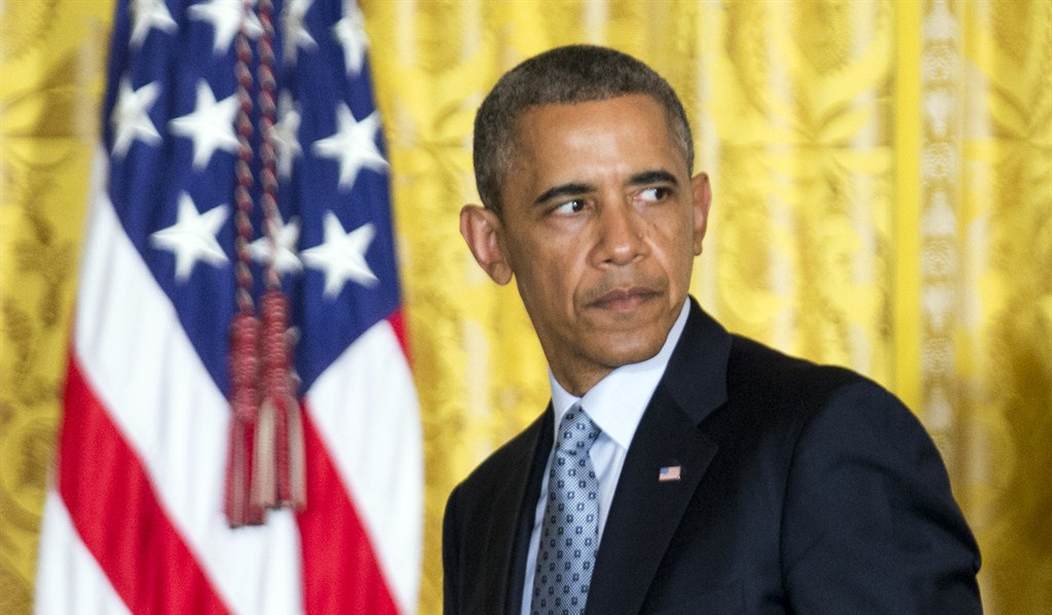In his first term, Barack Obama all but declared victory in America's Middle East struggles.
As he precipitously pulled out all U.S. peacekeepers from Iraq, the president had his own "Mission Accomplished" moment when declaring the country "stable," "self-reliant" and an "extraordinary achievement."
Those claims echoed Vice President Joe Biden's earlier boast that Iraq somehow would prove Obama's "greatest achievement."
After the death of Osama bin Laden, and during Obama's re-election campaign, the president also proclaimed that al-Qaeda was a spent force and "on the run."
But what exactly was the new Obama strategy that supposedly had all but achieved a victory in the larger war on terror amid Middle East hostility?
Fuzzy euphemisms replaced supposedly hurtful terms like "terrorism," "jihadist" and "Islamist." The administration gave well-meaning speeches exaggerating Islamic achievement while citing past American culpability.
We tilted toward Turkey and the Palestinians while sternly lecturing Israel. Military victory was caricatured as an obsolete concept. Leading from behind was a clever substitute.
Middle Easterners gathered that a bruised America would limp away from the region and pivot its forces elsewhere, saving billions of dollars to be better spent at home. The new soft-power rhetorical approach sought to win over the hearts and minds of the Arab Street, and thereby deny terrorists popular support.
To grade that policy, survey the current Middle East, or what is left of it: Egypt, the Gulf monarchies, Iraq, Iran, Israel and the Palestinians, Libya, Syria and Turkey. It is fair to say that America has somehow managed to alienate friends, embolden enemies and multiply radical Islamic terrorists.
Recommended
So what happened?
In short, the Obama administration put politics and ideology ahead of a disinterested and nonpartisan examination of the actual status of the 2009 Middle East.
The more Obama campaigned in 2008 on a failed war in Iraq, a neglected war in Afghanistan, an ill-considered war on terror and an alienated Middle East, the more those talking points were outdated and eclipsed by fast-moving events on the ground.
By Inauguration Day in January 2009, the hard-power surge had largely defeated al-Qaeda in Iraq. It had won over many of the Sunnis and had led to a U.S.-enforced coalition government, monitored by American troops.
But there remained one caveat: What had been won on the ground could be just as easily lost if the U.S. did not leave behind peacekeepers in the manner that it had in all its past successful interventions -- the Balkans, Germany, Italy, Japan, the Philippines, South Korea.
Likewise, the once-derided "war on terror" measures -- Guantanamo, the Patriot Act, military tribunals, preventative detentions, renditions and drones -- by 2009 had largely worked. Since 9/11, America had foiled dozens of terrorist plots against our homeland and neutralized terrorists abroad, killing tens of thousands in both Iraq and Afghanistan.
Obama for a while privately accepted that truth and thereby continued many of the very protocols that he had once derided.
But there was again one problem. Obama kept posturing to the world that he would close Guantanamo and substitute civilian trials for military tribunals. He continued to say that he did not enjoy using renditions or drones -- even as he upped the latter's deadly missions tenfold.
The results were contradictory messages that encouraged radical Islamists. The conclusion radical Islamists drew was that even the Obama administration had admitted its anti-terrorism protocols were either morally questionable or ineffective.
Blaming a video maker instead of immediately taking out the known jihadists who had murdered Americans in Benghazi only reinforced that mixed message. So did exchanging five terrorist kingpins in Guantanamo for an alleged American military deserter in Afghanistan.
A series of empty Middle East red lines, deadlines and withdrawal dates likewise reinforced the idea of American abdication.
We warned Syria of air strikes and then backed down. We surged in Afghanistan only to simultaneously announce a withdrawal date for our troops. We issued Iran lots of deadlines to stop enriching uranium, only to forget them and end sanctions in hope of negotiations.
As was the case with Russia, at first there were few consequences to such reset diplomacy and promises of easy victory. Al-Qaeda had been nearly wiped out in Anbar province in 2007-08 and was still regrouping. Iran had been crippled by sanctions and was wary of U.S. intentions. Terrorists did not wish to end up at Guantanamo or in a military tribunal.
But newly emboldened terrorists gambled that the old deterrence was stale and now existed mostly as Obama's reset rhetoric. They gambled that it was a great time to go on the offensive. They may have been right.
Once more in the Middle East, Barack Obama is looking to blame others for a mess that has grown since 2009. But mostly he just wants out of the lose-lose region at any cost and wishes that someone would just make all the bad things go away.

























Join the conversation as a VIP Member